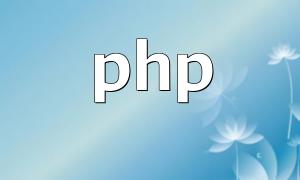PHP7 is the latest version of the PHP language, officially released on December 3, 2015. Compared to PHP 5.x, PHP7 brings many optimizations and improvements in performance, language features, and error handling. This article will thoroughly introduce the new features of PHP7.
PHP7 has made significant performance improvements, primarily due to its new Zend engine. The performance of PHP7 is approximately twice as fast compared to PHP5.x. This makes PHP7 a better choice for high-traffic websites and applications, offering faster response times and greater concurrency capabilities.
PHP7 introduces a new error handling mechanism called Throwable. The Throwable interface is the base interface for all objects that can be thrown and caught, allowing developers to capture multiple types of exceptions with a single code block. This is more flexible and efficient compared to error handling in previous PHP versions.
In PHP7, the syntax for error handling has also changed. You can now use try-catch statements to catch exceptions and use a finally block to execute code that should run regardless of whether an exception occurred.
try {
// Code block
} catch (Exception $e) {
// Exception handling
} finally {
// Code that runs regardless of whether an exception occurred
}
PHP7 allows scalar type declarations for function and method parameters and return values. You can declare four scalar types: int, float, string, and bool.
function add(int $a, int $b): int {
return $a + $b;
}
The spaceship operator (<=>) is a new comparison operator introduced in PHP7. It compares two expressions and returns a negative number if the left value is less than the right value, 0 if they are equal, and a positive number if the left value is greater than the right value.
$result = $a <=> $b;
PHP7 introduces the concept of anonymous classes, allowing you to create unnamed classes by instantiating objects. This is particularly useful for simple scenarios.
$anonymousClass = new class {
public function sayHello() {
echo "Hello";
}
};
$anonymousClass->sayHello();
PHP7 improves the error reporting mechanism, providing more precise error messages, making it easier for developers to locate and resolve issues.
PHP7 introduces strict mode and an enhanced type declaration mechanism, allowing developers to more accurately control variable types. This helps reduce type-related errors and bugs.
In addition to the improvements in the Zend engine, PHP7 also includes various performance optimizations, such as memory usage and function call optimizations, which boost overall execution efficiency.
PHP7 is an important step forward for the PHP language, offering higher performance and more flexible features. Through this comprehensive introduction to PHP7, we have explored its improvements in performance, error handling, and language features. Whether optimizing an existing project or starting a new one, PHP7 is a solid choice to consider.









